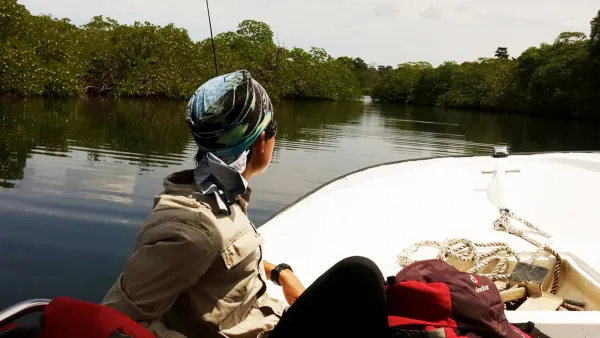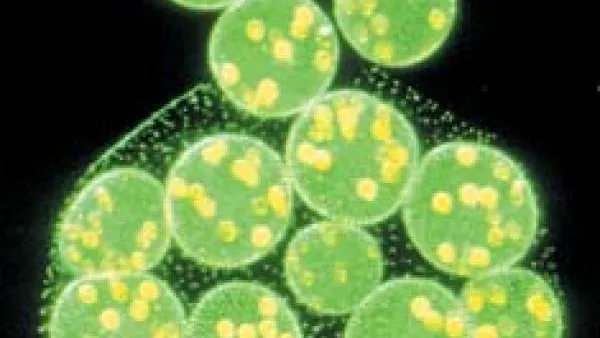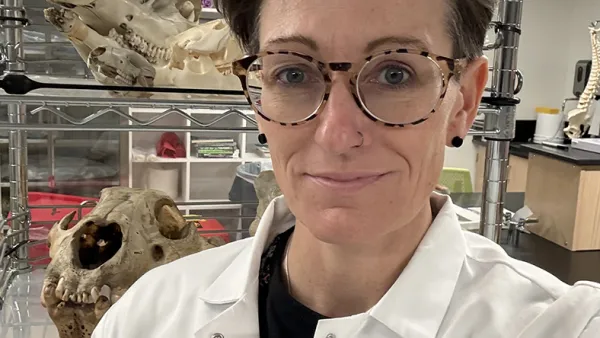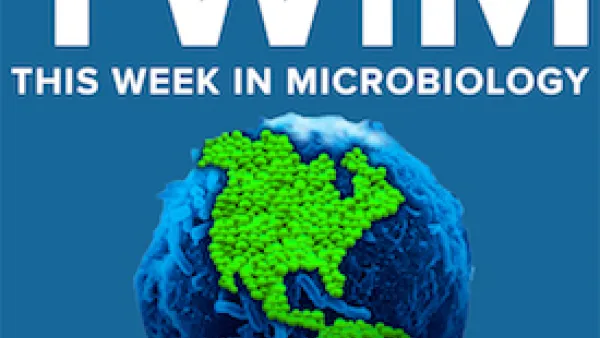Postdoctoral fellow Yusan Yang shares her path to Washington University and her belief that biology is not simply a formula or rule set to be followed.

Yusan Yang recently joined the Biology Department as a Living Earth Collaborative Postdoctoral Fellow. She is originally from Taiwan where she completed her undergrad education. Her focus shifted from physics and chemistry to biology in high school and college. The discovery that biology was not simply a formula or rule set to be followed, but rather a discipline that allowed room for change, was an inspiration point for that transition of interest.
“Early on, in middle school and high school, people often think biology is a subject of pure memorization, but I think actually there is a lot of logic behind the phenomenon that we see even though there is always exception in biology. I think that is really beautiful. This realization attracted me to dig deeper into why things are the way they are and why things evolved this way,” explained Yang.
Yusan began graduate school at Tulane University in New Orleans, but after one year, the Richards-Zawacki lab moved to the University of Pittsburgh, where Yusan completed her PhD dissertation on sexual selection and phenotypic divergence in the polymorphic strawberry poison dart frog (Oophaga pumilio).
“You don’t always find things that are the same as your hypotheses and that’s okay because that’s sometimes how you find new things or new directions in your research. For example, poison dart frogs have really strong color biases in terms of their behavior, so when the female is choosing a mate, she pays attention to color, and when the males are fighting, they pay attention to color, too.”
“We actually discovered that this behavior did not come from their genetics but instead comes from learning. So when the tadpoles are being fed by their mother, they imprint on their mother’s color, and that’s how they learn their color biases. I think that’s one of the things that is surprising but also really cool,” said Yang.

As an LEC postdoc at WashU, Yusan has 4 different mentors, with disciplines spanning ecology, evolution, neuroscience and economics. The collaborative nature of the program and opportunities to learn new things from a variety of people attracted her to the WashU community. Yusan’s interest mainly lies in the evolution of animal coloration and the evolution of their mating behaviors. She is currently exploring how genetic and environmental influences on mating behavior modulate ecological and evolutionary processes in Trinidadian guppies in collaboration with ecologists Swanne Gordon and Andrés López-Sepulcre, neuroethologist Bruce Carlson, and economist Paulo Natenzon.
“I’m an evolutionary biologist, interested in how evolution works. When we are first learning about evolution, this is the general introduction we usually get: there are variations in the populations and because of environmental pressure on different phenotypes, some die, some survive, some reproduce more, and these variations are passed on to the next generation and so we get evolution. We had this non-spoken assumption that only traits that are inherited mattered in evolution, but we are starting to realize more and more that things that change within the organism’s lifetime also impact evolution.”
“I am trying to fundamentally add to what we understood about the evolution process by looking at how experiences that one organism or one individual or different individuals have in their lifetime change the evolutionary trajectory of that population,” Yang explained.
Yusan’s proposed research had both field and lab components. Plans to test some of the field components last May were canceled due to COVID restrictions, so she started with the lab component instead. Hopefully next year or next season, this research will resume at Tyson Research Center, using the mesocosm stream that Swanne Gordon and Andres’ López-Sepulcre are building. Yusan hopes to do onsite fieldwork in Trinidad as well at some point to study the guppies in their natural environment.




